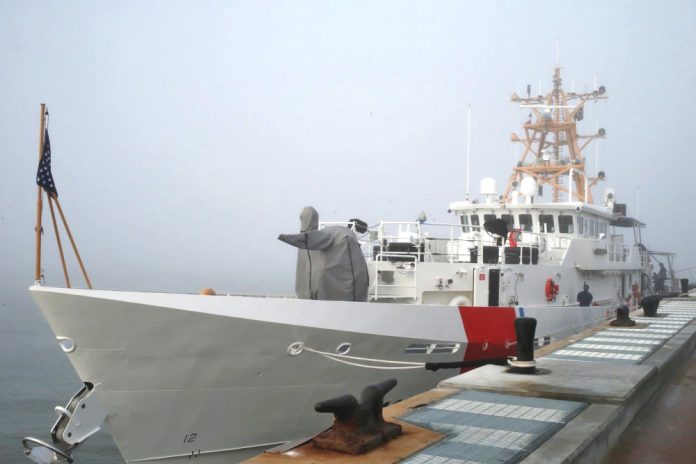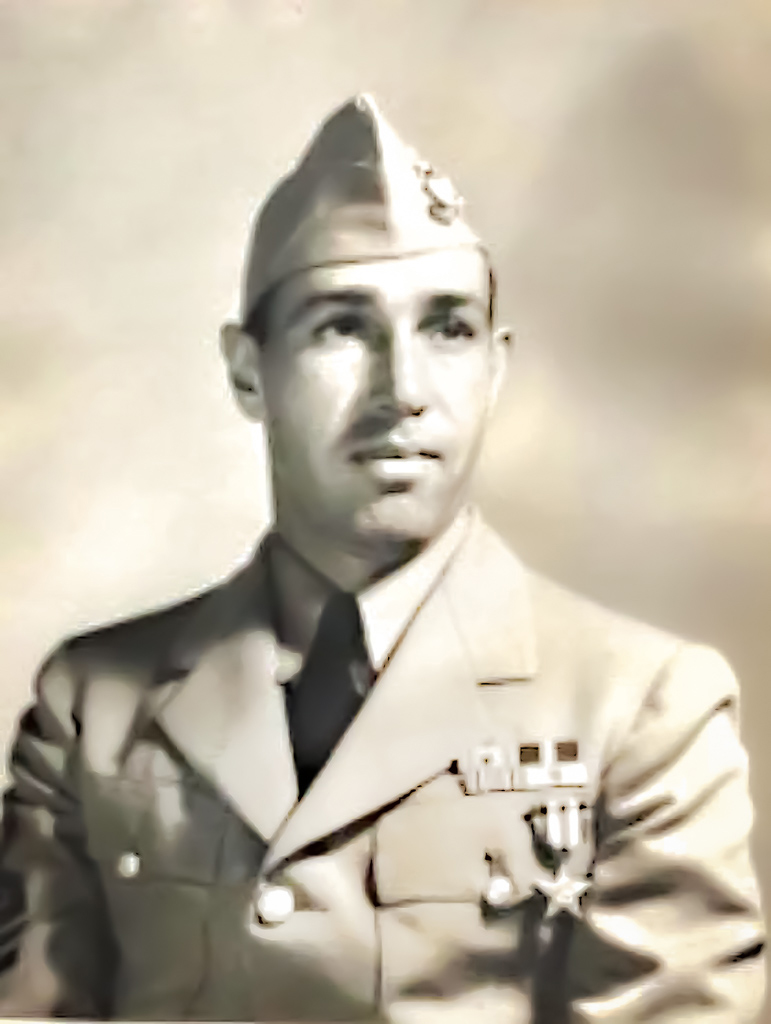
By Carol Vaughn —
A World War II hero from Chincoteague has a new Coast Guard cutter named after him.
The USCGC Daniel Tarr will be commissioned Jan. 10 in Galveston, Texas, after the Coast Guard accepted delivery of the vessel in Key West, Fla., in November.
The ship, which will be homeported in Galveston, is the Coast Guard’s 36th Sentinel-class fast response cutter, according to a press release from Bollinger Shipyards of Lockport, La., where it was built.
“I’m very proud to have this honor bestowed upon my father,” said Tarr’s son, Daniel Tarr III, who lives in Laurel, Del.
Numerous members of Tarr’s family, including three generations of Daniel Tarrs, plan to attend the commissioning ceremony.
The 154-foot cutter has a flank speed of 28 knots, state-of-the-art technology, and a stern launch system for a 26-foot cutter boat, according to the release.
The cutters are replacing 1980s-era patrol boats, according to the Coast Guard.
Each is named for an enlisted Coast Guard hero who distinguished him- or herself in the line of duty, according to the Coast Guard, which has ordered 56.
Coast Guard Surfman Daniel James Tarr Jr. — who died in 2007 at age 89 — was awarded the Silver Star for gallantry in action as a coxswain on Aug. 7, 1942, during a landing on Tulagi in the Solomon Islands in the first wave of a major U. S. assault.

Tarr and three other coxswains from the McKean were the first enlisted men in the Coast Guard awarded the Silver Star.
His son was born in 1956, well after the war ended, and was in college before the elder Tarr talked to him about his war experiences.
“He asked me, ‘Did you know my name is in a book?’” Tarr said.
Then he pulled a thick volume off the bookshelf, entitled ‘The U. S. Coast Guard During World War II.’”
In a chapter on the Solomon Islands, the authors described Tarr’s heroic actions.
Tarr and three other coxswains — William Sparling and Harold Miller of Michigan and Glenn Harris of North Carolina — landed the first group of the Marine Corps’ Raider Battalion on the beaches at Tulagi, and then made repeated trips over three days to land equipment, troops, ammunition, and supplies, according to the citation listed on the Hall of Valor Project website, https://valor.militarytimes.com/hero/33975
“The first day, he made five trips with Marines…and didn’t sustain any losses,” his son said.
The Marines captured the island after three days of fighting.
Tarr also made another landing against a Japanese force at Taivu Point, Guadalcanal, on Sept. 8, according to the citation.
The Navy chose experienced surfmen from the Coast Guard to operate landing craft on board its fast attack transports because of the men’s skills at operating small boats, according to historian William H. Thiesen, who wrote about Tarr in a blogpost at https://coastguard.dodlive.mil/2018/08/tlbl-tulagis-coxswains-silver-star-recipients/
Tarr enlisted as a surfman and later became coxswain of the McKean’s Boat Number 1.
Coxswains on the landing craft, known as Higgins Boats, were dangerously exposed to enemy fire, according to Thiesen.
Tulagi, the capital of the southern Solomon Islands, was the war’s “first true test of U. S. amphibious forces against entrenched enemy forces,” after the Japanese occupied the island in May 1942 with 800 troops, using it as a seaplane base, according to Theisen.
Like many others of his generation who served in the war, Tarr did not brag about his exploits.
“He only showed me his medals one time,” his son said.
Most of the details Tarr learned about his father’s wartime exploits came through a project his son, Daniel Tarr IV, was assigned in high school — to interview someone about World War II.
“I sat down and listened to the (recorded) interview, and learned a lot,” Tarr said.
Among the stories he learned was one about the Tulagi assault.
“He said after they had gained a foothold there on Tulagi, they were still drawing some heavy fire from the Japanese at a particular spot, and they didn’t know exactly where the machine-gun fire was coming from. So my dad was sent with another boatload of Marines to try to root out this…nest of machine gunners.
“They went in very silently; he said you could barely hear the engine running on the boat…They ended up landing the vessel only 15 feet from where these Japanese were,” Tarr said.
Tarr Jr. went on to have a 26-year career in the Coast Guard —including stints in Ocean City and at the Little Machipongo station, offshore from Quinby.
After that, Tarr graduated from the University of Maryland Eastern Shore and had a second career as an agricultural extension agent in Maryland, including being responsible for organizing and supporting 4-H clubs.
When he thinks about his father, it is a saying from that part of his life that Tarr said sums up the way his father lived: “He pretty much lived his life by the 4-H motto… ‘To make the best better.’”


